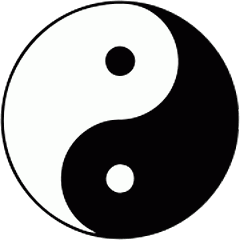Stress Relief Case History
Stress Relief Case History
Stress relief shoulders neck headaches anxiety circulation
Realistic work stress case study

Stress Treatments using acupuncture to help rebalance Yin and Yang
Work Stress Case Study which was realistically resolved by acupuncture, posture and lifestyle changes.
Stress Case Study
To better explain stress, here is an example of stress and its manifestations.
Case 1 36 year old male office worker.
In this case the patient worked 8+ hrs a day at his desk. He occasionally got up to speak to colleagues and go to meetings, but rarely left the building and had lunch at his desk.
His job was in the finance sector and was reasonably intense as he had to coordinate staff and budget, as well as carry out his own work.
His posture was ok but could be improved. He had a tendency to hunch over his keyboard when typing and did not remember to relax his shoulders or stretch his neck. As work became more demanding, so did his posture suffer.
Slowly but surely his shoulders and neck tightened, and it became painful to turn his head or look up. This, of course exacerbated his condition.
Deadlines and sales pressure fed into mental stress, which worsened the symptoms of his physical stress. Tension headaches became the norm, and he began having trouble staying asleep at night, which made the overall pattern of tension and pain worse.
His digestion suffered, and he began to experience acid reflux and excessive flatulence. From a TCM perspective there was definitely liver energy stagnation, combined with a weakening of his digestive energies.
When talking about the liver or indeed any organ in the context of TCM, it is important to realise that this is different to the Western Medical idea of organ function. In TCM the organs have a physical and energetic function. In this case it is the liver’s function of allowing a smooth flow of energy throughout the body that is compromised. This leads to tight muscles and tendons, as well as stress and anxiety as these are two of the TCM liver characteristics.
After a series of acupuncture treatments and the implementation of subtle lifestyle changes, the patient found that he could manage stress and the related physical pain a lot more effectively.
Some of these changes included adjusting his posture so that his back was straight, chin slightly tucked in, shoulders pulled back marginally, and jaw relaxed.
Also, eating lunch slowly and away from his desk helped support his digestion and liver function.
A small amount of low impact exercise improved circulation and reduced stress. In this case he utilised an exercise bike for 20 minutes 3 times a week, starting of slowly and gradually increasing speed as he got fitter.
Dietary changes were also subtle, a reduction in takeaway fatty foods and alcohol from several times a week to two or less proved pivotal in improving his mood and health generally.
Usually, small changes implemented over realistic time frames is the most effective way of achieving lasting, self-managed positive health outcomes. Radical lifestyle and dietary changes are usually ineffective and can indeed cause extra stress, because they are difficult to maintain.
Call Nathan to relieve stress on: 0404 427 510